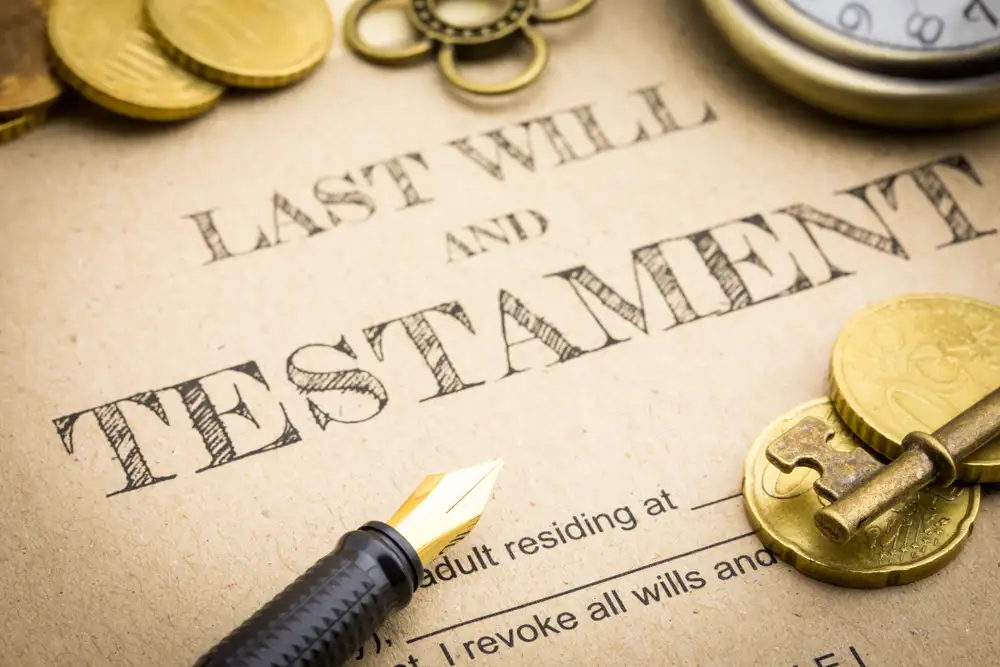Introduction
In the world of estate administration, the executor plays a pivotal role. Appointed by the deceased individual’s will or by a court when no will exists, an executor is responsible for settling the estate. If the executor is a trusted friend or family member, they are called a personal representative. This includes paying any debts or taxes, and distributing the remaining assets to beneficiaries as per the deceased person’s wishes.
One of these responsibilities might involve selling a property that belonged to the estate. However, in most cases, this can’t be done without going through a legal process known as probate. The probate process aims to ensure all financial obligations of the deceased are met before assets are distributed to beneficiaries.
But what if you could bypass this often lengthy and costly process? It may sound like wishful thinking, but under certain circumstances in Tennessee, it’s possible for an executor to sell a property without probate.
This guide provides insights into these specific circumstances and delves into important considerations and legal requirements involved in selling a property without probate. We’ll decode complex legal jargon and provide actionable tips for executors navigating the legal issues of this challenging task.
Understanding Probate Process and Laws in Tennessee
When a person passes away, their estate often goes through the probate process, a court-supervised procedure to authenticate the loved one’s will, assess the estate’s value, settle debts, and distribute estate property to beneficiaries. In Tennessee, this legal framework ensures the orderly transfer of property according to the decedent’s wishes or state law if there’s no will.
Role of the Court in Probate Proceedings
The court plays a critical role in probate proceedings. It:
- Validates the decedent’s will
- Appoints an executor or administrator if none is designated
- Oversees the inventory and valuation of estate assets
- Ensures debts and taxes are paid before distribution to heirs
Relevant Probate Laws in Tennessee
Several laws govern how property is transferred after someone dies. Among these:
- Tennessee Code Title 30: Outlines probate and administration of estates
- Tennessee Code Title 35: Addresses trusts and fiduciaries
- Tennessee Uniform Probate Code: Provides guidelines for estate settlement processes
These statutes dictate crucial steps for transferring ownership of real estate within Tennessee. Executors must navigate these regulations carefully to manage estates effectively. Compliance with local probate laws ensures that property sales are legitimate and binding, safeguarding all parties involved.
By understanding Tennessee’s probate process and laws, personal representatives can fulfill their duties with confidence.

Executor’s Authority and Responsibilities in Probate
A personal representative has a crucial role in the probate process. They are responsible for managing and disposing of the deceased person’s estate, which includes property. The personal representative’s fiduciary duty is relatively straightforward if the deceased loved one obtained any legal advice from an estate attorney before or during estate planning.
Property Management
One of the main tasks of a personal representative is taking care of any real estate involved. This includes:
- Keeping the property in good condition by doing necessary repairs
- Handling ongoing expenses like mortgage payments and property taxes
Property Sale
If it’s in the best interest of everyone involved, the personal representative can sell the property. However, they usually need permission from the court unless stated otherwise in the will. The can sell the property on their own (FSBO), to a real estate investor, or list it with a real estate agent.
Checks and Balances
A personal representative’s power is not unlimited; there are measures in place to ensure transparency and accountability:
- They have to provide regular updates to the court, explaining how they are managing the assets, including any plans to sell property.
- Personal representatives must always make decisions that benefit all beneficiaries and act honestly. If they do something that seems to benefit themselves more than others, they can face legal consequences.
Being a personal representative means finding a balance between handling assets effectively and following legal responsibilities. This is important to keep in mind when dealing with probate laws in Tennessee.
Selling Property: Probate vs. Non-Probate Transfers
When you want to sell property in Tennessee after someone’s passing, it’s important to know the difference between probate and non-probate transfers. Each method has its own rules for transferring ownership.
Probate Transfers
During probate, a court oversees how a deceased person’s assets, including property, get distributed. Here’s what happens:
- The court figures out how much the property is worth by getting an appraised value.
- Any debts and taxes related to the property are paid.
- Whatever is left of the property goes to the rightful beneficiaries.
If you’re selling real estate during probate, you usually need permission from the court. The money from the sale usually goes towards paying off any remaining debts before it can be given to the beneficiaries.
Non-Probate Transfers
With non-probate transfers, you can skip the court process and pass on property directly after someone dies. There are a couple of ways this can happen:
- Joint Tenancy: If the property is owned by multiple people as joint tenants, it automatically goes to the surviving owner(s) without going through probate.
- Living Trusts: A living trust holds onto property for certain people (beneficiaries) and can say how it should be taken care of and given out after death. This completely avoids probate.
These strategies can make things easier when dividing up property but require careful planning while someone is still alive. Keep in mind that only assets specifically set up to avoid probate, like those in a living trust or owned by joint tenants with rights of survivorship, can be transferred without going through court.
Knowing these differences is really important if you’re responsible for handling someone’s property after they die. In Tennessee, it’s a good idea to follow local rules and get advice from professionals who know about both probate and non-probate transfers so you can navigate this complicated process well.

When Probate Can Be Avoided: Scenarios for Selling Without Probate in Tennessee
In Tennessee, executors sometimes find themselves in a position to sell property without the full probate process. Certain scenarios make this possible:
1. Small Estates
Tennessee law provides for simplified procedures when dealing with small estates. If the value of the estate is below a specific threshold and meets certain criteria, an executor may be allowed to distribute assets, including selling property, without formal probate.
2. Joint Tenancy with Right of Survivorship
Property held in joint tenancy automatically passes to the surviving owner(s) upon death. In such cases, the property does not become part of the decedent’s estate and can be sold by the surviving joint tenant(s) without probate.
3. Transfer on Death Deeds (TODDs)
Tennessee recognizes TODDs that allow real estate owners to name beneficiaries who will receive the property upon their death, bypassing the probate process.
4. Living Trusts
A living trust can hold real estate and other assets. Upon the grantor’s passing, the successor trustee can transfer property according to the terms of the trust, potentially avoiding probate.
These situations highlight ways in which an executor or relevant party can transfer or sell property without probate in Tennessee. It’s crucial for individuals involved in estate administration to understand these exceptions as they navigate the legal landscape surrounding estate settlement.
Obtaining Court Approval for Property Sale in Probate
When an executor is handling the sale of a property during probate, obtaining court approval is a pivotal step in Tennessee. The court’s authorization ensures that the sale adheres to legal standards and protects the interests of the estate and its beneficiaries.
The Process for Court Approval
Petition for Sale
Executors must file a petition with the probate court detailing their intention to sell the property. This document should include reasons for the sale, information about the property, and proposed terms.
Notice of Sale
Upon filing, executors are often required to notify all interested parties, which provides an opportunity for objections or bids from other potential buyers.
Hearing
A hearing may be scheduled where the judge reviews the petition, considers any objections, and assesses whether the sale serves the best interest of the estate.
Court Order
If approved, a court order is issued authorizing the executor to proceed with the sale under specified conditions.
Criteria for Authorization
The criteria considered by Tennessee courts typically involve:
- Fair Market Value: The proposed sale price should reflect fair market value. An appraisal might be necessary to support this valuation.
- Beneficiary Interests: The sale should not negatively impact beneficiary rights or their expected inheritance without just cause.
- Creditor Claims: Priority is given to satisfying creditors’ claims against the estate before any distributions.
By meticulously following Tennessee’s requirements, executors can navigate through this process effectively. The goal is to fulfill their duties while honoring legal obligations to all parties involved.
Executors considering selling property within probate are advised to collaborate closely with a law firm specialized in probate law to ensure compliance with these intricate procedures.
Seeking Consent from Beneficiaries: Balancing Interests in Property Disposition
While court approval is a crucial step to selling property during probate, another key consideration lies in the consensus from beneficiaries. Whether legally required or not, gaining agreement among all parties with a vested interest in the property can lead to a smoother process and avoid potential disputes down the line.
Obtaining Consent from Beneficiaries
Typically, an executor needs to obtain the consent of all beneficiaries before they can sell a property. This requirement helps ensure that everyone’s interests are taken into account during the decision-making process. It’s vital to note that the executor acts as a steward for the estate, serving the best interests of all beneficiaries.
Exceptions to Unanimous Approval
However, there are exceptions where unanimous approval may not be necessary. For instance:
- If a will explicitly grants an executor the power to sell real estate without beneficiary consent.
- When dealing with potential conflicts of interest among beneficiaries such as disagreements on asking price or timing of sale.
In these cases, it’s important for executors to tread carefully to avoid legal complications. It’s advisable for executors to maintain open communication with all beneficiaries and document any decisions made during this process. This practice not only provides transparency but also serves as protection against potential legal disputes.
While navigating this step can be complex, remember that every situation is unique. Executors should seek legal advice tailored to their circumstances to ensure they’re adhering properly to their duties and responsibilities.
What About Abatement?
When an executor faces the task of distributing an estate’s assets, they may encounter the term abatement. This legal concept involves the hierarchical settlement of debts and distributions when the estate’s assets are insufficient to cover its liabilities.
Definition and Significance
Abatement is the adjustment of bequests and legacies due to insufficient funds within an estate. It ensures that debts, taxes, and administrative expenses have priority according to Tennessee laws.
Impact on Property Sales
If an estate in Tennessee lacks enough assets to pay off its obligations, selling a property without probate might be affected by abatement. The reason is simple: before any distribution to beneficiaries, outstanding debts must be settled first.
Executor’s Role
Executors need a solid grasp of abatement processes to navigate these situations effectively. They are responsible for evaluating the estate and determining if abatement will alter their approach to managing and disposing of property.
Understanding abatement is crucial for executors, especially when considering selling a property without going through probate. It directly influences which assets are available for sale and how proceeds should be allocated. Executors must ensure compliance with state laws while also fulfilling their duties to creditors and beneficiaries alike.
The responsibilities surrounding abatement highlight the complexity of an executor’s role. They must remain vigilant about changes in the estate’s financial landscape that could necessitate asset redistribution or additional legal steps.
What is Intestate Succession and How Does it Work in Tennessee?
In the world of probate law, an important term to understand is “intestate succession”. This refers to the legal process that unfolds when a person passes away without a will. For Tennessee residents who die intestate – that is, without a will – their assets and property are distributed among their heirs according to the state’s intestate succession laws.
These laws dictate how the deceased’s property is divided among surviving relatives. Specific rules apply depending on familial circumstances:
- Married with children: If the deceased was married and had children, the spouse and children typically inherit the estate.
- Married without children: In cases where there were no children, the spouse usually inherits everything.
- Single with children: If the deceased was unmarried but had children, those children would receive all assets.
- No spouse or children: When there are no direct descendants or a surviving spouse, parents of the deceased often become the beneficiaries.
These are general outlines of intestate succession scenarios. However, it’s important to note that each case is unique and subject to individual circumstances. Therefore, it’s crucial to consult with a legal expert in Tennessee who can provide guidance based on your specific situation.
Navigating through intestate succession can be complex. An executor must not only understand these laws but also how they apply in their particular case. As we continue exploring probate-related topics, consider these guidelines as part of your executor toolkit.
Can An Executor Sell Property Without All Beneficiaries Approving?
The role of an executor in probate proceedings is a critical one. As the person entrusted with administering the deceased’s estate, they must make decisions that best serve the interests of all beneficiaries. This fiduciary duty extends to the sale of property, one of the most significant assets in many estates.
In general, an executor can sell a property without all beneficiaries approving, but this largely depends on the specificities of the will and probate laws in Tennessee. If the will grants the executor explicit power to sell property as they see fit, they may proceed without unanimous approval.
However, not all wills provide such clarity. In cases where the will is silent about the power to sell property, or if there are disputes among beneficiaries, it’s advisable for the executor to seek court approval for the sale. This reduces potential risks and challenges, like title issues and disputes from interested parties.
The court typically considers factors like the estate’s debts and whether selling would be in the best interest of all beneficiaries before granting authorization. Beneficiaries may have a say in this process as well, so open communication is key.
Nevertheless, exceptions exist where unanimous approval isn’t necessary. For instance, when a beneficiary who hasn’t consented can’t be located or is unresponsive. So while it’s possible for an executor to sell property without all beneficiaries approving, it’s important to tread carefully considering potential legal implications and conflicts that may arise among beneficiaries.
Potential Risks and Challenges
Selling a property without probate comes with its share of risks and challenges. Here are some important points to keep in mind:
1. Title Issues
When selling a property, it’s crucial to establish clear ownership. Probate court often helps in resolving any lingering questions about title history. If you bypass probate, it’s essential to ensure no hidden ownership claims could surface, leading to disputes or even lawsuits.
2. Disputes from Interested Parties
Beneficiaries, creditors, or other stakeholders might disagree with the decision to sell without probate. They could argue that this method doesn’t protect their interests adequately as compared to a traditional probate sale.
3. Buyer Concerns
While navigating these challenges, keep in mind that some potential buyers might be wary of properties sold without probate. They may fear potential legal complications or other unforeseen problems.
It’s also worth noting that if you’re considering selling the property to an entity like Nexus Homebuyers, which offers fast cash purchases of properties in any condition, you’ll still need to consider these risks. Nexus can simplify many aspects of the selling process, but the responsibility for ensuring clear title and managing potential disputes still lies with the executor.
Navigating these risks and challenges calls for careful thought and planning. In many cases, consulting with an experienced probate attorney can provide valuable guidance.
Conclusion
As executors in Tennessee consider the intricate task of managing an estate, including the sale of property, it is critical to seek the expertise of a qualified attorney. Those specializing in probate law and real estate transactions are invaluable in navigating the complexities that arise when selling a property outside of probate. Although certain circumstances might allow for this option, it remains a nuanced legal endeavor demanding professional oversight.
The responsibilities resting on an executor’s shoulders are substantial, balancing efficiency in estate administration against safeguarding the rights and interests of all parties. Creditors, heirs, and beneficiaries look to the executor to manage the deceased’s assets with diligence and transparency. It is essential for executors to remain cognizant of their duties while being attuned to the legal landscape that governs estate matters in Tennessee.
For those facing decisions about property within an estate, options like selling your home fast through a buyer like Nexus Homebuyers could streamline the process. This route may be particularly compelling for properties that require a swift resolution without the need for repairs or upfront costs.
By prioritizing clear communication with involved parties and seeking authoritative legal counsel, executors can fulfill their role with confidence and integrity, ensuring that every step taken aligns with Tennessee’s legal requirements and respects the legacy of the departed.
FAQs
Are there any legal risks involved in selling a property without going through probate in Tennessee?
Yes, there are risks, such as challenges to the sale from beneficiaries or creditors, and potential title issues that could arise if the property’s transfer does not follow legal procedures.
What are the requirements for selling a property without probate in Tennessee?
To sell without probate, the property must be eligible for non-probate transfer mechanisms like joint tenancy or trust administration. The specific requirements vary depending on the situation and type of property ownership.
Can an executor sell a house without going through the probate process?
In certain cases, yes. If the house is owned in joint tenancy with survivorship rights or is part of a living trust, it may be possible to sell without going through probate.
Can an executor sell a house that is in probate?
An executor can sell a house during probate if they obtain court approval and follow the necessary legal steps imposed by Tennessee’s probate laws.
Can an executor transfer property to themselves?
An executor can only transfer property to themselves if they are a lawful beneficiary and follow all legal procedures, including obtaining court approval if required to ensure no conflicts of interest.


